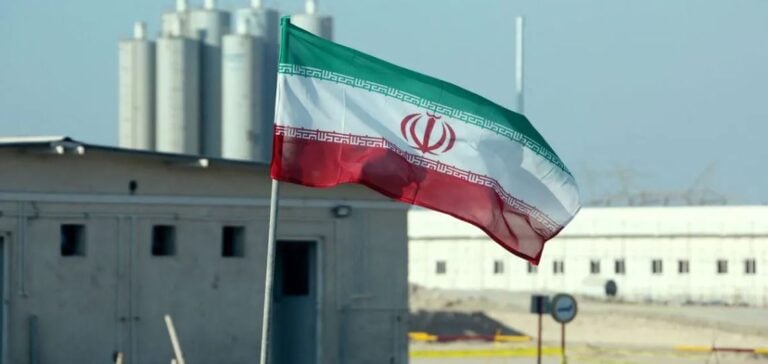The United States and European nations, represented by France, Germany, and the United Kingdom (E3), have officially submitted a resolution condemning Iran at the Board of Governors of the International Atomic Energy Agency (IAEA). This resolution, set for a vote on Thursday in Vienna, marks an escalation in tensions surrounding Iran’s nuclear program.
This resolution, although symbolic at this stage, follows a series of unsuccessful attempts to obtain clarifications regarding traces of uranium found at two undeclared sites in Iran, Turquzabad and Varamin. Despite a recent visit to Tehran by IAEA Director General Rafael Grossi, progress described as “positive” by Iranian authorities has not reassured Western powers.
An alarming escalation
During discussions with Mr. Grossi, Iranian President Massoud Pezeshkian reiterated his commitment to dispelling “doubts and ambiguities” about the country’s nuclear program. In a confidential report, the IAEA confirmed that Iran has initiated preparations to limit the growth of its 60%-enriched uranium stockpile. However, this step has been met with skepticism by Washington and its allies, who view it as a tactic to buy time.
Iran’s enriched uranium reserves, now estimated at 182.3 kilograms, are a significant concern. This stockpile, far exceeding the 3.67% limit stipulated by the 2015 international agreement (JCPOA), is sufficient to produce several nuclear bombs.
Tehran’s firm warning
In response to this resolution, Iranian Foreign Minister Abbas Araghchi warned of consequences. During a conversation with Rafael Grossi, he argued that the Western initiative risks “unnecessarily complicating” the situation.
“Iran will react appropriately,” stated Mr. Araghchi, while asserting that the resolution undermines the positive atmosphere of recent exchanges between Tehran and the IAEA.
A pact in shambles
The 2015 agreement, known as the JCPOA, aimed to limit Iran’s nuclear ambitions in exchange for lifting international sanctions. However, the unilateral withdrawal of the United States under President Donald Trump in 2018 disrupted this balance.
Since then, Iran has escalated its nuclear program, reaching enrichment levels close to the 90% threshold required for a nuclear weapon. French Foreign Minister Jean-Noël Barrot called this escalation “concerning,” citing “major risks of nuclear proliferation.”
Geopolitical and security stakes
Iran, the only non-nuclear-armed state enriching uranium to such levels, justifies its actions as necessary for civilian energy needs. However, Western powers remain concerned about Tehran’s true intentions, particularly amid heightened regional tensions.
Meanwhile, diplomatic efforts to revive the JCPOA remain stalled. France and its European partners continue to advocate for renewed negotiations, but Moscow and Beijing’s support for Tehran limits available options.






















